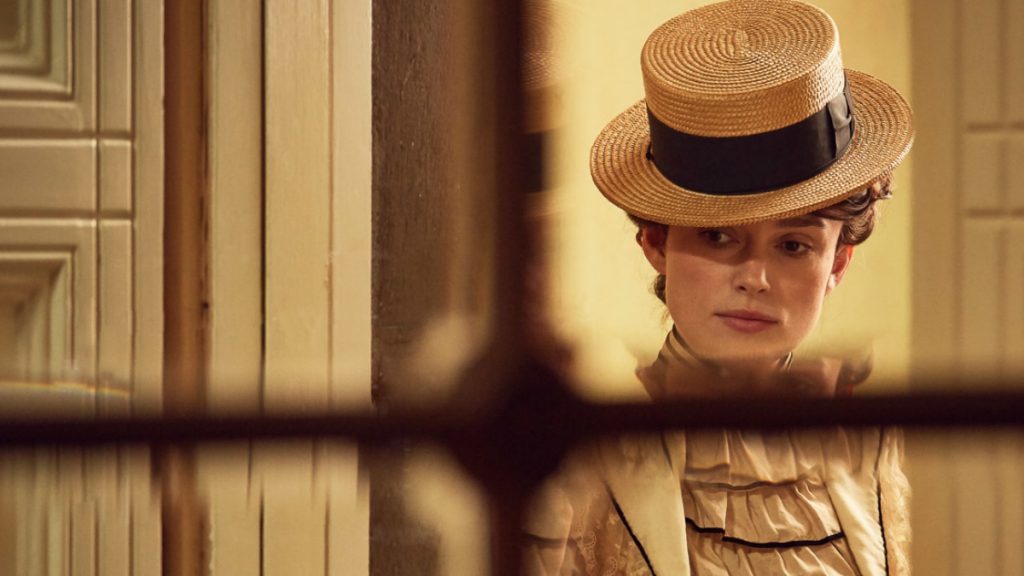Following The Wife, a movie about a woman who ghost writes for her husband only to resent him, comes Colette, a movie about a woman who ghost writes for her husband only to resent him. The difference is, in The Wife, Glenn Close waits until years later to express her resentment, while in Colette, Keira Knightley reacts sooner, when she still has time to do something about it. Both are compelling stories, but Colette is a better movie.
It’s based on the true story of Sidonie-Gabrielle Colette, whose four Claudine stories earned her husband, Henry Gauthier-Villars (Dominic West), fame and fortune in turn of the century Paris. She emerged from an eventual divorce to become a celebrated novelist in her own right, winning the Nobel Prize in literature in 1948; however, the movie depicts only the years until their split. They separated in 1906 and were officially divorced in 1910.

Colette has a slow beginning, but gathers steam to end up being an entertaining experience. We’re dropped into a story that’s already started, so it takes some time to figure out who’s who and what’s what. Only after Colette and “Willy” are married do we really understand what he does for a living. Well, to say he actually does something may be misleading. He’s a lovable scoundrel, putting together publishing deals without thinking long term.
My questions throughout the movie involve Willy, not Colette. He sacrifices the longevity of their relationship for immediate financial gain. Maintaining his position in society seems to be his primary motivation. However, this doesn’t automatically mean he doesn’t love his wife. Even when he has affairs, they’re not sentimental. He’d never leave her for someone else. He even allows her dalliances rather than let them put an end to their marriage.

During her affair with Mathilde de Morny, Marquise de Belfeuf (Denise Gough), Colette emerges from her shell, and Colette becomes interesting. Denied recognition for her writing, she takes to the stage in an attempt to express herself. Even though it’s an era of the artistic and avant-garde, a performance in which she kisses “Missy” ends in an uproar from the audience. Despite all indications that she doesn’t belong in theater, she persists.
The climax of the movie is only the end of one chapter in the real Colette’s life. Had I not researched her, I would never have realized she actually returned to writing and earned such recognition for it. In that sense Colette is not the typical story of a woman who, despite all obstacles, makes something of herself. It’s about the process of getting somewhere, not the actual arrival. It’s a journey worth taking.



